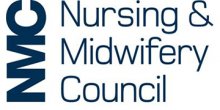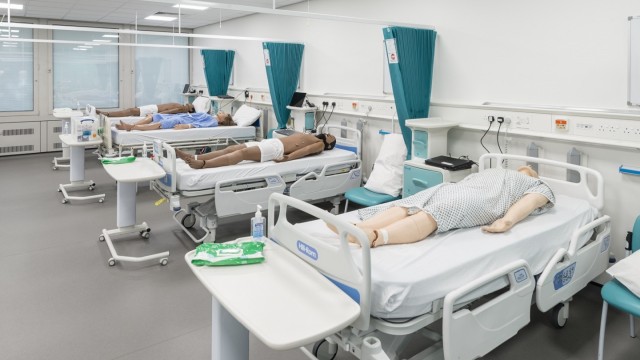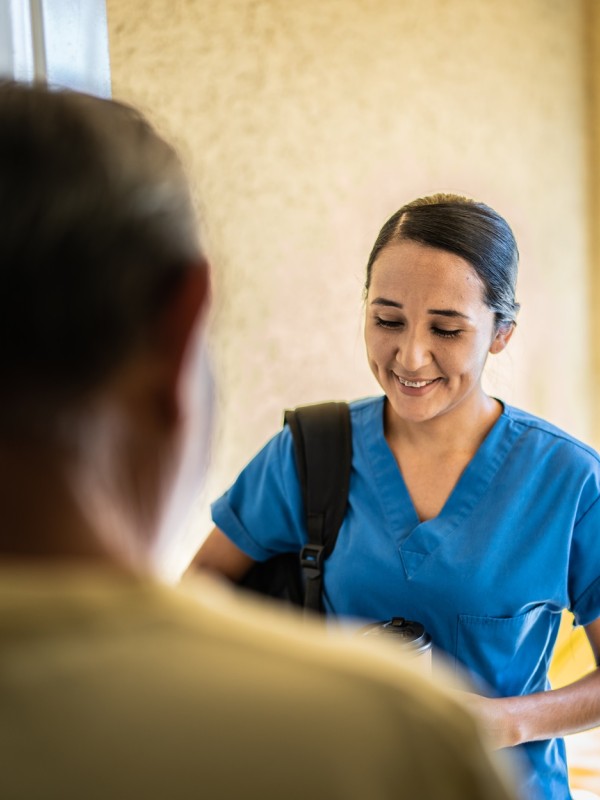
- Public Health Practice SCPHN Health Visiting
PGDip — 2025 entry Public Health Practice SCPHN Health Visiting
On this course, you’ll gain the assessment and leadership skills to deliver person-centred care that empowers parents and carers.
Why choose
this course?
- Learn from experienced professionals who are experts in their respective fields and who will ensure that you receive high-quality education and mentorship.
- Benefit from our established partnerships with local healthcare institutions and community organisations, providing you with valuable clinical opportunities. You will gain hands-on experience and apply your learning in real-world settings under the supervision of experienced practice assessors and supervisors.
- Learn in a research-intensive environment, which may offer you opportunities to engage in cutting-edge research projects and contribute to the advancement of nursing knowledge and specialist practice.
- Meet the Nursing and Midwifery Council’s (NMC) standards for specialist education and practice and record your qualification with the NMC.
- Take advantage of Surrey’s reputation and strong connections within the healthcare sector, including with the Queen’s Nursing Institute, to enhance your career prospects.
Statistics
4th in the UK
For nursing and midwifery in the Postgraduate Taught Experience Survey 2023 (CAH3)
7th in the UK
For nursing in the QS World University Subject Rankings 2024
100%
Of graduates from our School of Health Sciences are in employment or further study (Graduate Outcomes 2024, HESA)

What you will study
This course has been designed to provide practitioners, who are NMC-registered nurses or midwives, with the public health skills required to be a specialist community public health nurse (health visiting).
The curriculum is structured to sequence theory and practice at increasing levels of complexity. You will begin with broad-based knowledge and skill acquisition then progress to learning activities with an increasingly specific focus. We want to ensure you get the most out of the course, so we will provide support and practical learning that is tailored to your needs.
Professional recognition
PGDip - Nursing and Midwifery Council (NMC)
Recognised by the Nursing and Midwifery Council (NMC) as a post-registration and CPD qualification.
Sponsorship
Applications should initially be made via NHS jobs for sponsored places on the course. If you are interested in self-funding for this course, please contact the programme leader for further information.
Clinical placements
You’ll spend half of your training in clinical placements, allowing you to develop your knowledge and skills within healthcare settings. Theory and practice are integrated throughout the course and a balance of learning opportunities is provided. Your learning will be supported by a named practice supervisor, practice assessor and academic assessor. Your practice placement will be organised by your employing/hosting NHS community organisation.
You can choose to complete this course full-time over one year or part-time over two years.
The structure of our programmes follows clear educational aims that are tailored to each programme. These are all outlined in the programme specifications which include further details such as the learning outcomes:
Modules
Modules listed are indicative, reflecting the information available at the time of publication. Modules are subject to teaching availability, student demand and/or class size caps.
The University operates a credit framework for all taught programmes based on a 15-credit tariff, meaning all modules are comprised of multiples of 15 credits, up to a maximum of 120 credits.
Course options
Year 1
Semester 1
Core
The module will enable the students to critically examine the key concepts of public health and health promotion. Students will develop knowledge and skills in accessing and analysing data to enable them to identify health inequalities and health needs. Students will debate how health promotion approaches and interventions can address contemporary public health issues that support people and communities to meet their health optimum.
View full module detailsThe module provides opportunities for students to develop and demonstrate knowledge and understanding of holistic assessment and the use of advanced communication skills. Students will be able to examine and reflect on their own and others skills through the use of role play with actors, and to critically apply the evidence base in relation to validated assessment tools and communication methods. In addition to interprofessional learning, there will be opportunities for students from different professional disciplines to develop professional identity through facilitated sessions focusing on their professional background.
View full module detailsThe module provides opportunities for students to develop and demonstrate knowledge and understanding of the complexities surrounding safeguarding children, young people and vulnerable adults. Students will be empowered to play a pro-active role in the protection of vulnerable people. In addition to interprofessional learning, there will be opportunities for students from different professional disciplines to develop professional identity through facilitated sessions focusing on their professional background.
View full module detailsSemester 2
Core
This module encourages learners to reflect on their own practice and development to consider leadership theories and literature in response to a changing healthcare landscape. To cultivate healthcare leaders who possess a comprehensive critical understanding of ethical leadership, using advanced cognitive and practical skills to promote equitable practice, demonstrating the ability to create positive learning cultures within interdisciplinary teams, fostering a commitment to equity, diversity, and inclusion in healthcare settings.
View full module detailsSemester 1 & 2
Core
This module provides opportunities for students to develop into culturally competent autonomous practitioners within school nursing critically appraising the contemporary evidence base to link theory to practice (NMC (2022) Standards of proficiency for specialist community public health nurses). Students will be supported in practice by an appropriately skilled and qualified SCPHN school nurse practice assessor and practice supervisor who will provide learning experiences and continuously assess progress utilising the Practice Assessment Document (PAD). SCPHN school nurse students will become skilled practitioners in leading and influencing public health care across diverse families, schools and populations implementing child-centred and proportionate care within universalism. Working with school aged children and young people, students will develop unique skills in collaborating with them and their families, carers, schools and other agencies, building trusting relationships to influence positive health outcomes.
View full module detailsThe module will develop public health nurses knowledge and skills in reviewing and critically analysing research, data and public health policy relating to an area of public health need in their local workplace community. Students will develop and plan an innovative public health project to address a community health need. This module typically focuses on the practical aspects of project development within the context of public health nursing.
View full module detailsYear 2
Semester 1
Core
The module provides opportunities for students to develop and demonstrate knowledge and understanding of holistic assessment and the use of advanced communication skills. Students will be able to examine and reflect on their own and others skills through the use of role play with actors, and to critically apply the evidence base in relation to validated assessment tools and communication methods. In addition to interprofessional learning, there will be opportunities for students from different professional disciplines to develop professional identity through facilitated sessions focusing on their professional background.
View full module detailsThe module provides opportunities for students to develop and demonstrate knowledge and understanding of the complexities surrounding safeguarding children, young people and vulnerable adults. Students will be empowered to play a pro-active role in the protection of vulnerable people. In addition to interprofessional learning, there will be opportunities for students from different professional disciplines to develop professional identity through facilitated sessions focusing on their professional background.
View full module detailsSemester 1 & 2
Core
The module will develop public health nurses knowledge and skills in reviewing and critically analysing research, data and public health policy relating to an area of public health need in their local workplace community. Students will develop and plan an innovative public health project to address a community health need. This module typically focuses on the practical aspects of project development within the context of public health nursing.
View full module detailsYear 1
Semester 1
Core
The module will enable the students to critically examine the key concepts of public health and health promotion. Students will develop knowledge and skills in accessing and analysing data to enable them to identify health inequalities and health needs. Students will debate how health promotion approaches and interventions can address contemporary public health issues that support people and communities to meet their health optimum.
View full module detailsSemester 2
Core
This module encourages learners to reflect on their own practice and development to consider leadership theories and literature in response to a changing healthcare landscape. To cultivate healthcare leaders who possess a comprehensive critical understanding of ethical leadership, using advanced cognitive and practical skills to promote equitable practice, demonstrating the ability to create positive learning cultures within interdisciplinary teams, fostering a commitment to equity, diversity, and inclusion in healthcare settings.
View full module detailsAcross academic years
Core
This module provides opportunities for students to develop into culturally competent autonomous practitioners within school nursing critically appraising the contemporary evidence base to link theory to practice (NMC (2022) Standards of proficiency for specialist community public health nurses). Students will be supported in practice by an appropriately skilled and qualified SCPHN school nurse practice assessor and practice supervisor who will provide learning experiences and continuously assess progress utilising the Practice Assessment Document (PAD). SCPHN school nurse students will become skilled practitioners in leading and influencing public health care across diverse families, schools and populations implementing child-centred and proportionate care within universalism. Working with school aged children and young people, students will develop unique skills in collaborating with them and their families, carers, schools and other agencies, building trusting relationships to influence positive health outcomes.
View full module detailsTeaching and learning
Your teaching will be delivered through a combination of:
- Lectures
- Group work
- Simulation
- Online learning
- Role play
- Specialty-focused tutorial groups
- Profession-led case studies / scenarios
- Learning sets.
AssessmentWe use a variety of methods to assess you, including assessment in practice by your practice assessor and practice supervisor.
Check individual module information for further details.
General course information
Contact hours
Contact hours can vary across our modules. Full details of the contact hours for each module are available from the University of Surrey's module catalogue. See the modules section for more information.
Timetable
Course timetables are normally available one month before the start of the semester.
New students will receive their personalised timetable in Welcome Week, and in subsequent semesters, two weeks prior to the start of semester.
Please note that while we make every effort to ensure that timetables are as student-friendly as possible, scheduled teaching can take place on any day of the week (Monday – Friday). Wednesday afternoons are normally reserved for sports and cultural activities. Part-time classes are normally scheduled on one or two days per week, details of which can be obtained from Academic Administration.
Location
Our Medicine (Graduate Entry) BMBS degree, nursing and midwifery, and health science courses are taught at the Kate Granger Building (30 Priestley Road), on the Surrey Research Park.
You’ll be expected to attend clinical placements with your NHS employer. Please see the Course details section for more information.
We use a variety of methods to assess you, including assessment in practice by your practice assessor and practice supervisor.
Check individual module information for further details.
Contact hours
Contact hours can vary across our modules. Full details of the contact hours for each module are available from the University of Surrey's module catalogue. See the modules section for more information.
Timetable
Course timetables are normally available one month before the start of the semester.
New students will receive their personalised timetable in Welcome Week, and in subsequent semesters, two weeks prior to the start of semester.
Please note that while we make every effort to ensure that timetables are as student-friendly as possible, scheduled teaching can take place on any day of the week (Monday – Friday). Wednesday afternoons are normally reserved for sports and cultural activities. Part-time classes are normally scheduled on one or two days per week, details of which can be obtained from Academic Administration.
Location
Our Medicine (Graduate Entry) BMBS degree, nursing and midwifery, and health science courses are taught at the Kate Granger Building (30 Priestley Road), on the Surrey Research Park.
You’ll be expected to attend clinical placements with your NHS employer. Please see the Course details section for more information.
We offer careers information, advice and guidance to all students whilst studying with us, which is extended to our alumni for three years after leaving the University.
100% of graduates from our School of Health Sciences are in employment or further study (Graduate Outcomes 2024, HESA).
On completion of the course, you will gain the NMC recordable qualification of Specialist Community Public Health Nurse (Health Visitor).
Visit the Southeast Clinical Networks website for further information on Health Visiting in the South East.
You’ll benefit from our multimillion-pound facilities, including our lecture theatres and seminar rooms, designed to promote knowledge exchange and networking with other healthcare professionals.
UK qualifications
A minimum of a 2:2 in a relevant UK honours degree. Students who have a Diploma in Higher Education or a bachelor's degree with a lower grade may be considered using the Advanced Standing process to support their application.
On entry to the programme the applicant must be a NMC registered nurse (level 1) or NMC registered midwife capable of safe and effective practice at the level of proficiency appropriate to the NMC approved specialist community public health nurse (SCPHN) programme.
English language requirements
IELTS Academic: 7.0 overall with 7.0 in each element.
These are the English language qualifications and levels that we can accept.
If you do not currently meet the level required for your programme, we offer intensive pre-sessional English language courses, designed to take you to the level of English ability and skill required for your studies here.
Scholarships and bursaries
Discover what scholarships and bursaries are available to support your studies.
Course fees
This course is normally conducted as a fully-funded placement through our partnered NHS trusts, and as such has no tuition fee costs to the student.
If you will be self-funding, please contact the programme leader for information regarding the fees.
This course is self-paced, so self-funding students will pay fees on a module-by-module basis, please see our CPD modules for further information.
How to apply
Applications should initially be made via NHS jobs.
Eligible applicants will be given further information on how to submit an application to the University following a successful interview with the Trust. If you have any questions please email admissions@surrey.ac.uk.
Admissions information
Once you apply, you can expect to hear back from us within 14 days. This might be with a decision on your application or with a request for further information.
Our code of practice for postgraduate admissions policy explains how the Admissions team considers applications and admits students. Read our postgraduate applicant guidance for more information on applying.
About the University of Surrey
Need more information?
Contact our Admissions team or talk to a current University of Surrey student online.
Terms and conditions
When you accept an offer to study at the University of Surrey, you are agreeing to follow our policies and procedures, student regulations, and terms and conditions.
We provide these terms and conditions in two stages:
- First when we make an offer.
- Second when students accept their offer and register to study with us (registration terms and conditions will vary depending on your course and academic year).
View our generic registration terms and conditions (PDF) for the 2024/25 academic year, as a guide on what to expect.
Disclaimer
This online prospectus has been published in advance of the academic year to which it applies.
Whilst we have done everything possible to ensure this information is accurate, some changes may happen between publishing and the start of the course.
It is important to check this website for any updates before you apply for a course with us. Read our full disclaimer.








